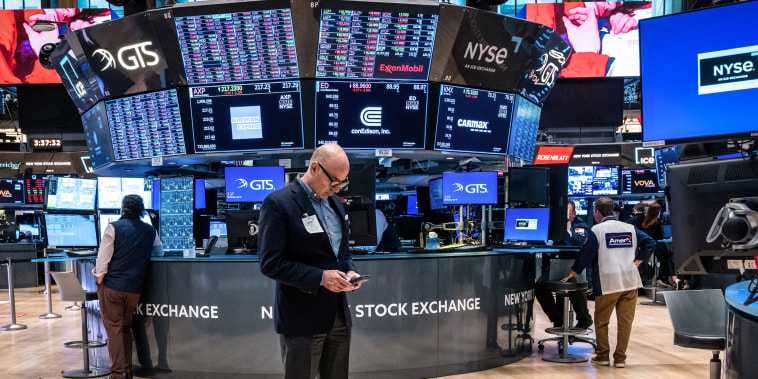There are moments in the financial landscape that leave many investors and analysts on edge. One such recent event occurred when the Dow Jones Industrial Average tumbled a significant 475 points and the S&P 500 suffered its worst day since January. These losses came amidst a backdrop of growing concerns over inflation, sparking fears and uncertainty among market participants.
Inflation has been a hot topic in economic discussions as prices continue to rise across various sectors, from consumer goods to housing and energy. The latest data on inflation revealed a sharp increase, fueling worries that the Federal Reserve may need to adjust its monetary policy sooner than anticipated in an effort to combat rising prices.
The impact of inflation is far-reaching, affecting not only the purchasing power of consumers but also the profitability of businesses and the overall health of the economy. As consumer prices surge, companies face higher input costs, squeezing profit margins and potentially leading to cutbacks in production or increases in prices for consumers.
The recent market sell-off was a clear indicator of how sensitive investors are to news of inflationary pressures. Stock prices plummeted as concerns mounted about the implications of higher inflation for corporate earnings and economic growth. The technology sector, in particular, took a hit, as many high-growth companies are particularly sensitive to changes in interest rates and inflation expectations.
Amidst the market turmoil, investors are left wondering how long the current inflationary environment will persist and what actions the Federal Reserve will take to address it. The central bank has signaled its intentions to start tightening monetary policy, which could involve raising interest rates or reducing its bond-buying program. However, the timing and pace of these actions remain uncertain, adding to the air of caution in the markets.
As investors navigate these turbulent times, it is essential to keep a long-term perspective and stay informed about the latest economic data and policy developments. Diversification, risk management, and staying updated on market trends are crucial strategies to weather the storm and position portfolios for long-term success.
In conclusion, the recent market selloff driven by inflation woes serves as a stark reminder of the unpredictability and volatility inherent in financial markets. While short-term fluctuations can be unsettling, maintaining a disciplined investment approach and focusing on fundamentals can help investors navigate the choppy waters and emerge stronger on the other side.
